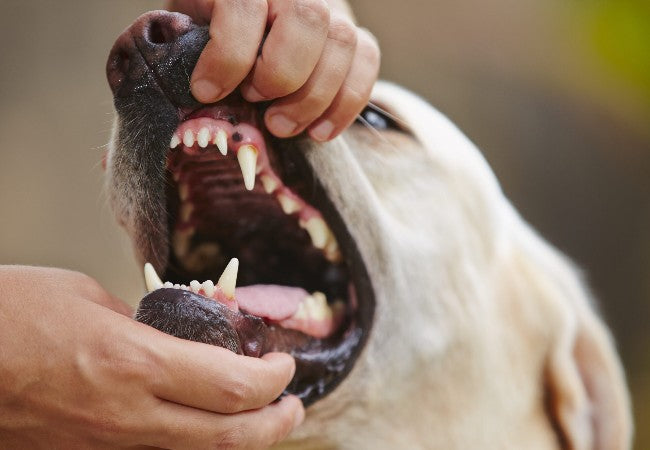Why Does My Dog’s Breath Smell? Vet‑Approved 2025 Guide to Halitosis Causes & Solutions🩺🐶

In this article
Why Does My Dog’s Breath Smell? Vet‑Approved 2025 Guide to Halitosis Causes & Solutions🩺🐶
By Dr. Duncan Houston BVSc
Bad breath isn’t just unpleasant—it can signal health issues ranging from dental disease to organ dysfunction. Here’s a comprehensive, vet-approved breakdown of the causes, treatments, and prevention steps for fresh breath and better health in 2025. 🩺🐶
1️⃣ Most Common Cause: Dental Disease
- Plaque and tartar build-up leads to gum disease, infections, and a sulfurous odor.
- Bacteria under the gums release volatile sulfur compounds causing halitosis.
2️⃣ Dental Troubles: Signs & Risks
- Loose teeth, red/swollen gums, difficulty eating, drooling.
- If ignored, bacteria can spread to heart, liver, and kidneys.
3️⃣ Organ-Related Causes
- Kidney disease: “urine/feces”-like odor on breath.
- Liver disease: Foul breath + vomiting, appetite loss, yellow gums.
- Diabetes: Sweet, fruity, or nail‑polish‑like odor.
4️⃣ Other Possible Causes
- Diet: garbage or feces eating can cause foul breath.
- Gastrointestinal issues or oral tumors can also produce odors.
5️⃣ Diagnosing the Cause
- Vet exam with mouth inspection, dental X‑rays, bloodwork/urinalysis to assess oral & organ health.
- Catching issues early prevents complex, costly health problems.
6️⃣ Home Care: Start with Brushing
- Daily brushing with dog-safe toothpaste is most effective.
- VOHC-approved dental chews, water additives, and foods support oral hygiene—but don’t replace brushing.
7️⃣ Professional Dental Cleaning
- Anesthetic cleanings remove plaque/tartar, polish teeth, and allow extraction of problem teeth.
- Twice-yearly dental exams help monitor progress and prevent recurrence.
8️⃣ Natural & Supplement Boosts
- Coconut oil, raw carrots, apple slices, mint, and probiotics may freshen breath and support gut/oral health.
📊 Quick Reference Table
| Cause | Breath Odor | Action |
|---|---|---|
| Dental disease | Foul/sulfur | Brush daily, cleaning |
| Kidney disease | Urine/feces-like | Vet check + blood/urine test |
| Liver disease | Foul, with vomiting | Immediate vet exam |
| Diabetes | Sweet/fruity | Vet blood glucose test |
| Diet/garbage | Rotten/fecal | Clean access, supervise |
| GI/oral tumors | Persistent odor | Vet exam + diagnostics |
🔍 Final Thoughts
Persistent bad breath is often a sign—most commonly of dental disease—but can also point to serious organ issues. Start by brushing daily, use supportive products, schedule regular vet cleanings, and seek veterinary care if unusual odors appear. With early intervention, you’ll help your dog live healthier and happier in 2025 and beyond! 🐾❤️
Need help setting up a brushing routine, choosing dental products, or booking treatment? Download the Ask A Vet app for personalized vet support and fresh breath advice anytime. 📱🦷






